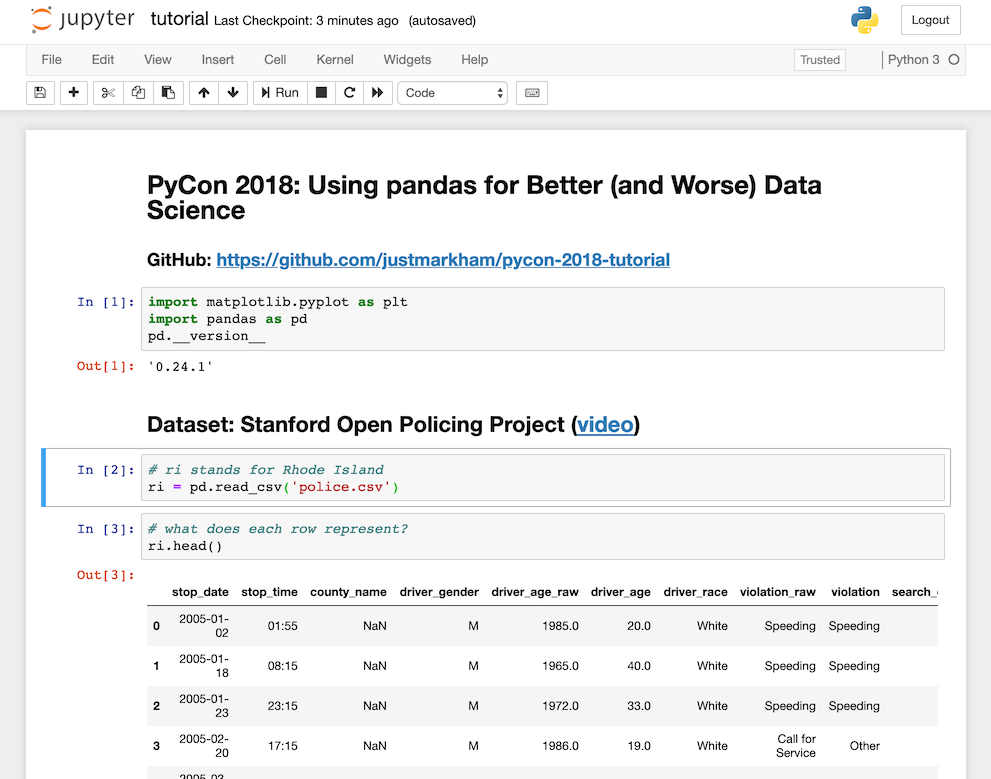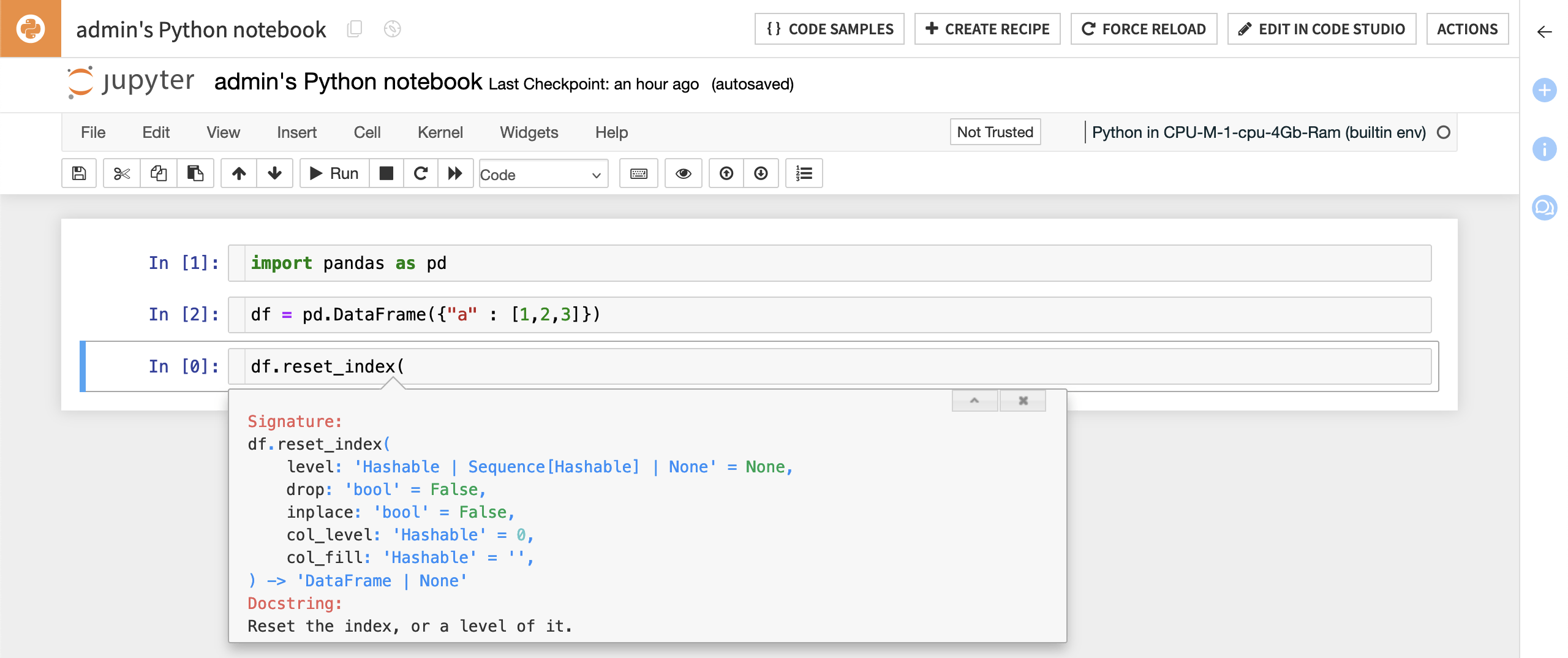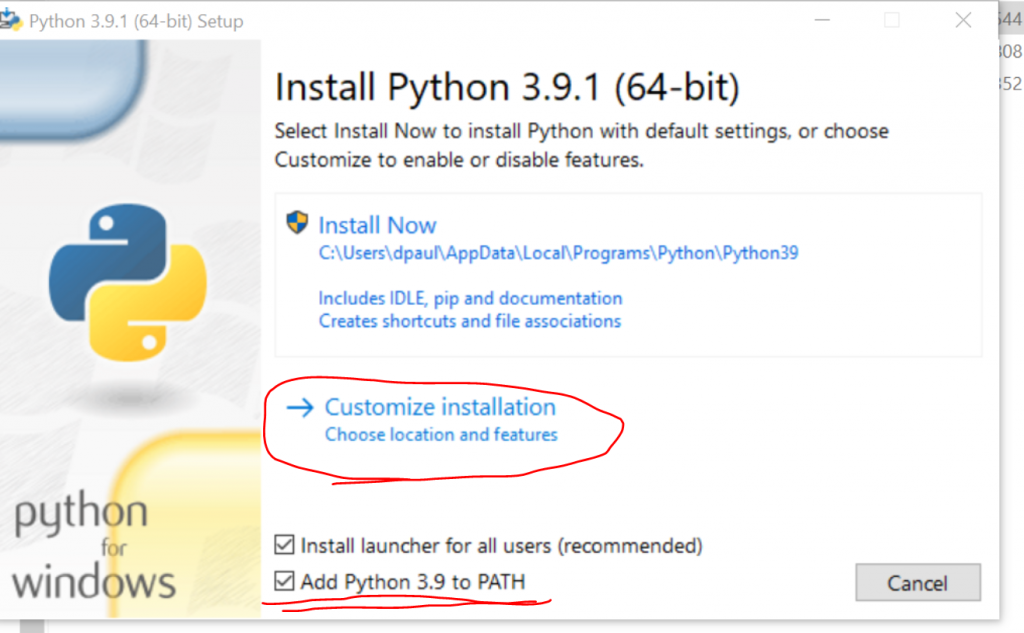
#Pip install jupyter notebook while running code#
We developed this tool because we felt the pain of Jupyter code diffs. To learn more about these features and others, you can use the -help flag after any CLI command, or you can check out the documentation website. nbautoexport also has a clean command to clean up old export files if you change the names of your notebooks. You can use it in a pinch when GitHub's notebook renderer fails, or you can quickly grab it to email to someone.

We've found it useful to additionally generate an HTML version. You can configure the export to give you multiple formats. Nbautoexport has additional advanced features. You can check out the demo repo shown in the screenshots here, and you can see the pull request directly here. Use "View file" from the menu to quickly get to the rendered notebook. We often find it helpful to have them open to the side while reviewing the code diffs. If you want to see the rendered notebook, you can use the "View file" menu option as a shortcut to quickly get to it. We get the desired difference view that we showed earlier in the article, without having to manually generate the files. You can commit the exported scripts, and now you can use them for code reviews.

In the future, any time you save a notebook in this directory, nbautoexport will regenerate the exported files in script/. #> notebooks/ #> ├── script #> │ └── workflow.py #> └── workflow.ipynb You should install it in the same virtual environment that you are running Jupyter Notebook or JupyterLab from. You can get nbautoexport like typical Python packages with pip from PyPI or with conda from conda-forge. In this section, we'll walk through the basic setup and use. Nbautoexport is a tool for automatically running notebook exports when you save notebooks while using Jupyter. In order to make this experience seamless, we at DrivenData developed nbautoexport on top of nbconvert to handle this all automatically for our projects.Īutomating script exports with nbautoexport py script files to a repository is very helpful for code reviews, but it's tough having to remember to run nbconvert all the time. How can we most easily get this source code out of the notebook files? The utility nbconvert from Jupyter is a handy way of exporting notebooks into other formats, including a Python script source code format. It's a clean way for reviewers to see the code and to leave comments inline. In addition to the Jupyter Notebooks, we also include script versions when we commit to version control.

Even little things like syntax highlighting make the experience much more pleasant.īecause source code is so well-supported, we make use of this workflow for our Jupyter Notebook code reviews. Version control repository hosts like GitHub and Bitbucket have focused pull request review workflows, making it easy for reviewers to examine and comment on diffs. In typical code reviews, reviewers spend their time looking at the differences between source code before and after a change, commonly referred to as diffs. 'Tis a barren wasteland, riddled with fire and ash and dust.

This raw JSON is hard to read and navigate, and it's not conducive for diffs. While GitHub provides nicely rendered file views for notebooks, the pull request interface instead shows the underlying raw JSON. The raw content of notebooks are a gnarly mix of source code, markdown, and HTML embedded in a JSON document. Unfortunately, Jupyter Notebooks are challenging to do code reviews for. In our standard project structure ( Cookiecutter Data Science), we keep our notebooks organized together within a notebooks/ subdirectory. The code used to produce a result is inlined alongside it, making it easy to inspect and understand how the result was produced.Īt DrivenData, Jupyter Notebooks are our go-to medium for conducting and documenting exploratory data analyses. As a computational notebook framework, Jupyter facilitates "literate computing" and reproducible analyses. Jupyter Notebooks are a ubiquitous part of data scientists' toolkit, especially for those working in the Python ecosystem, and for good reason. In this article, we will show you how we include script copies of notebooks in version control, which are generated automatically with nbautoexport. Have you ever felt frustrated with how difficult it is to do a code review for Jupyter Notebooks? At DrivenData, we developed an open-source tool called nbautoexport to make this experience better.


 0 kommentar(er)
0 kommentar(er)
